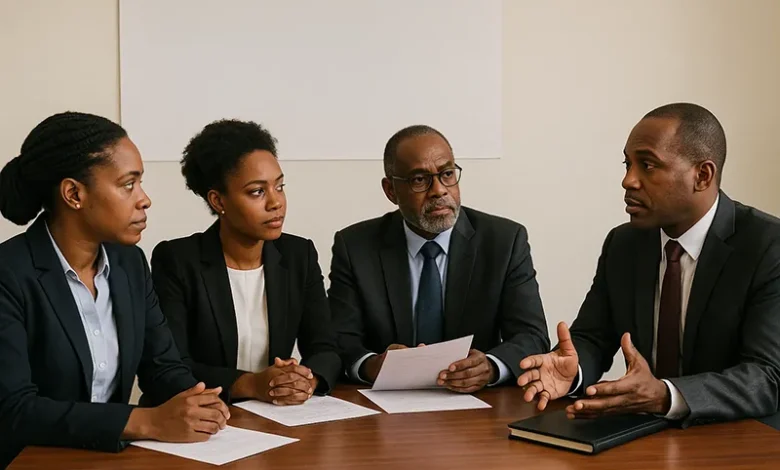Civil Society in Dominica

Civil society in Dominica refers to the collective landscape of non-governmental organizations, community-based groups, professional associations, and faith-based institutions that engage citizens outside of the formal structures of government and the private sector. These actors serve as vital channels for public participation, social support, and policy advocacy. From post-colonial development efforts to disaster response and democratic reform, civil society shapes the island’s national conversation and social fabric.
Dominica’s history of activism, from workers’ unions in the 1940s to cultural advocacy movements in the 1970s, has laid the groundwork for a relatively active civil society sector. Despite the country’s small size and limited resources, many organizations have maintained strong grassroots engagement, supported by international donors, religious institutions, and diasporic networks.
Key Organizations and Areas of Influence
Civil society in Dominica includes a wide range of entities. Longstanding groups such as the Dominica National Council of Women (DNCW) have advanced gender rights and social justice for decades. The Dominica Association of Persons with Disabilities (DAPD) provides critical support for advocacy, education, and accessibility. The Dominica Council on Ageing represents the interests of older citizens, especially in relation to health, pensions, and dignity in aging.
Environmental activism has also played a prominent role in civil society development. Groups such as the Waitukubuli Ecological Foundation, La Plaine Heritage and Development Committee, and the Dominica National Conservation Trust Fund have campaigned for sustainable land use, marine protection, and the preservation of Dominica’s biodiversity. These organizations are often consulted on matters relating to climate resilience, community forestry, and eco-tourism.
Community-based organizations such as the Karifuna Cultural Group in the Kalinago Territory, and cultural preservation groups in Grand Bay (South City), also show how local civil society actors contribute to national heritage, identity, and inclusive development.
Civil Society and Governance
Dominica’s civil society operates in a democratic context but faces structural challenges. Many NGOs and community groups remain underfunded, often relying on small grants, volunteerism, or support from faith communities and the diaspora. Nonetheless, civil society has been a vocal force during moments of national transformation, such as the advocacy surrounding the Freedom of Information Act, electoral reform debates, and the call for post-disaster transparency following Hurricane Maria.
The Dominica Association of Industry & Commerce (DAIC), although focused on business, also plays a bridging role between the public, private, and civic sectors, particularly when addressing economic recovery or national development planning. Trade unions such as the Waterfront & Allied Workers Union (WAWU) and the Dominica Public Service Union (DPSU) remain central players in labour rights discourse.
Religious groups, especially the Catholic Church, have a long tradition of community outreach, education, and advocacy, providing services in areas the state may not reach consistently. Churches and faith-based associations often run pre-schools, elderly care programs, and hurricane shelters.
Challenges and Opportunities for Civil Engagement
The primary challenge facing civil society in Dominica is sustainability. Many organizations lack institutional funding or dedicated staff, making it difficult to engage in long-term planning or policy engagement. Additionally, political polarization in national life can sometimes discourage open civic dialogue or complicate NGO-government relationships.
However, opportunities for civil society continue to grow, particularly through digital platforms and regional networks. The emergence of new youth-led initiatives in environmental activism, entrepreneurship, and mental health, particularly post-Maria and during the COVID-19 pandemic, suggests a generational renewal in civic participation.
International frameworks such as the UN’s Sustainable Development Goals (SDGs) have also encouraged alignment of local NGO work with broader developmental indicators, opening up partnerships and technical assistance opportunities.




